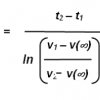Have you ever studied your LP(a) (Lipoprotein(a)) level which is particularly pathogenic and is currently considered to be the strongest genetic risk factor for coronary heart disease?
While I could well improved with nutrition, lifestyle and supplementation in particular my total cholesterol, HDL, LDL, apoB/apoA-I ratio, TG's and could move from being "pattern B" (bad) to "pattern A" (good) in two VAP tests (patterns relate to the size of LDL particles, small side is bad as more atherosclerotic), my LP(a) remains stubbornly high around the 300-350 mg/dl (ref. <300). I am looking at its genetics and will post in my thread on personalized nutrition but wonder if you have some insight where to look and provide some help. Lowering LP(a) in severe cases is done using an expensive process called apheresis which I am not considering at present.
LP(a) molecule is composed of an LDL cholesterol molecule and a glycoprotein, apolipoprotein(a). There are huge differences in plasma ranges between healthy individuals (factor 1000) and it looks that pathogenity is possibly caused by the binding of oxidized phospholipids to the Lp(a).
Good information into LP(a) at:
Lipoprotein(a): resurrected by genetics
http://www.ncbi.nlm....pubmed/22998429





















































